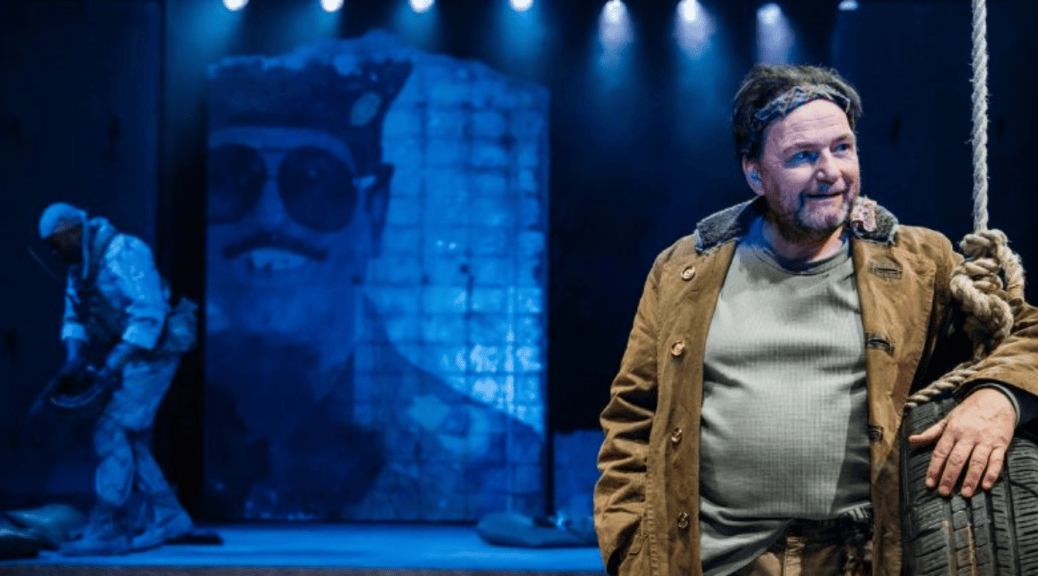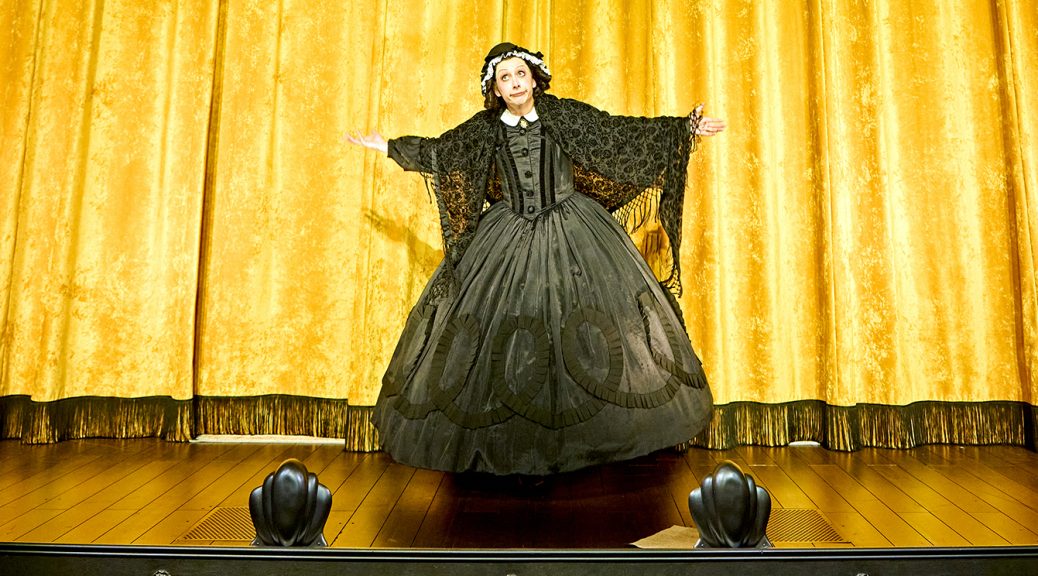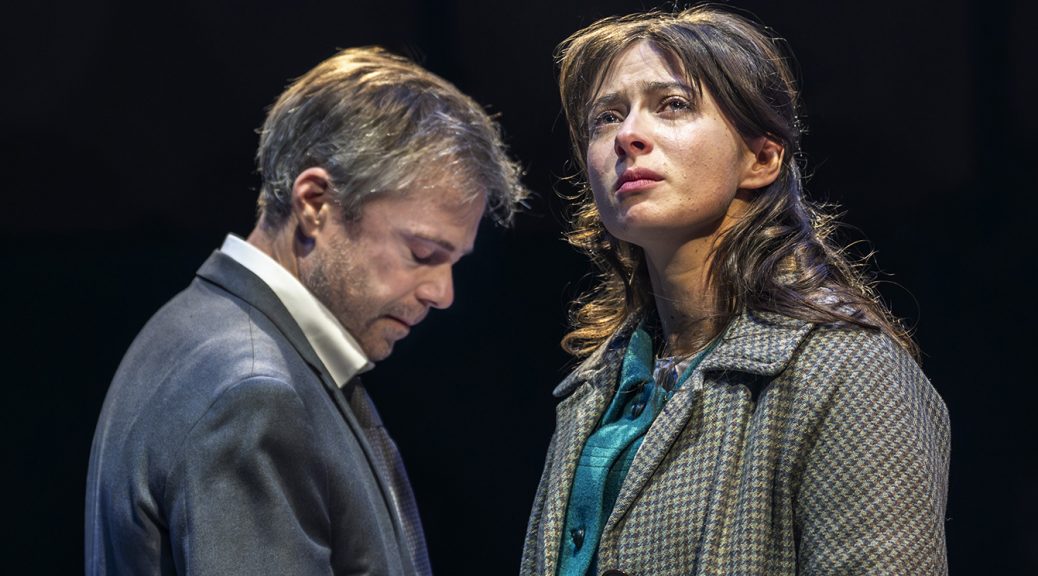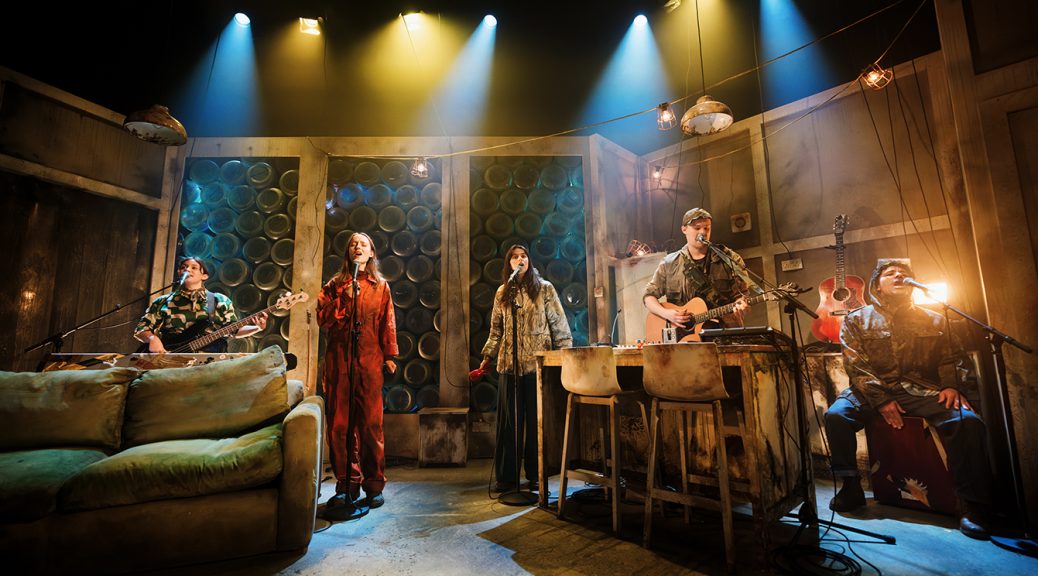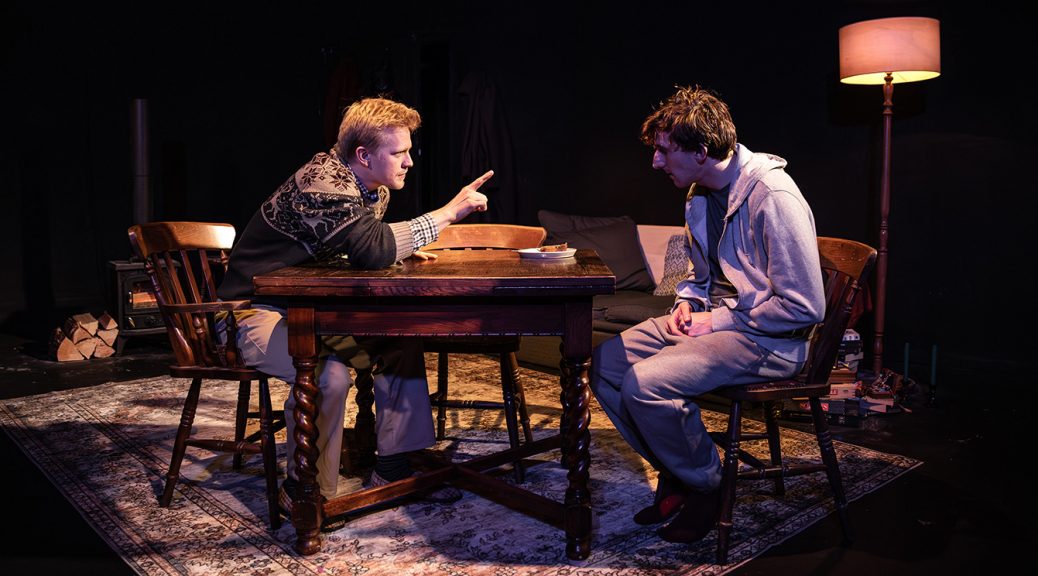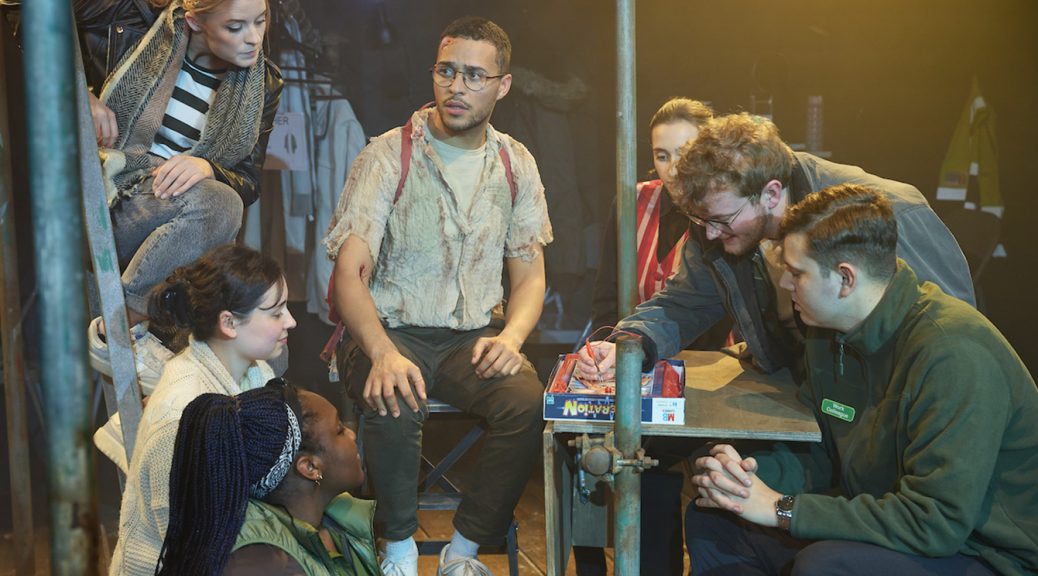It might seem a little odd to hold the world premiere of a Western, set in sun-drenched New Mexico, in wintry London. This new play by Eric Roth, based on the Oscar-winning 1952 film, feels like a labour of love that has questionable appeal. But it manages to entertain and, pretty much, convince.
The creative teams’ credentials are impeccable. Roth is no stranger to Academy Awards himself. This foray on to the stage is competent, if unimaginative, with strong characters and clear themes. It helps that the story is good, with recently retired Marshall Will Kane rejected by the town he served when he needs help the most. Thea Sharrock’s direction is tight, making the most of the idea that the action is in ‘real time’ and giving the impression that the cast is much larger than it actually is. Tim Hatley’s unfussy set also deserves praise, aiding some pretty clunky scene changes.
The casting is great, too. Movie star Billy Crudup takes the lead role and is suitably inspiring, making an asset of his character’s vulnerability. West End favourite Denise Gough is his love interest and benefits from the slightly more interesting role of Amy. Gough, always good with angst, gets the most out of her character’s religious questions and there’s a powerful chemistry between the leads. Their age makes the story slightly different, and both performers lean into this commendably. There is strong support from a hard-working James Doherty, who takes on three roles, including the show’s villain out for revenge. And there’s another nicely written role for Rosa Salazar as no-nonsense local businesswoman Helen Ramirez – she even manages to inject some much-needed humour into the show. You wait a long time for a scene between her and Gough. Thankfully, when it arrives it is a highlight.
Reservations arise, though. Having some singing in the show isn’t a bad idea. Gough’s voice is impressive. But her character’s refrain isn’t memorable and there are also recorded tracks that jar. It’s hard to avoid the notion that someone at some point wanted this to be a musical and then gave up on the idea. Some nods to the immorality of leaders lack subtlety and the need to make the piece ‘relevant’ doesn’t convince. But the moral of the tale isn’t as simple as it might be. Twists with Amy’s conscience are neat moves and the overall message of standing up for what you believe is suitably rousing, but also complex. To that end, the elevated story makes this show worth watching.
Until 6 March 2026
Photos by Johan Persson



